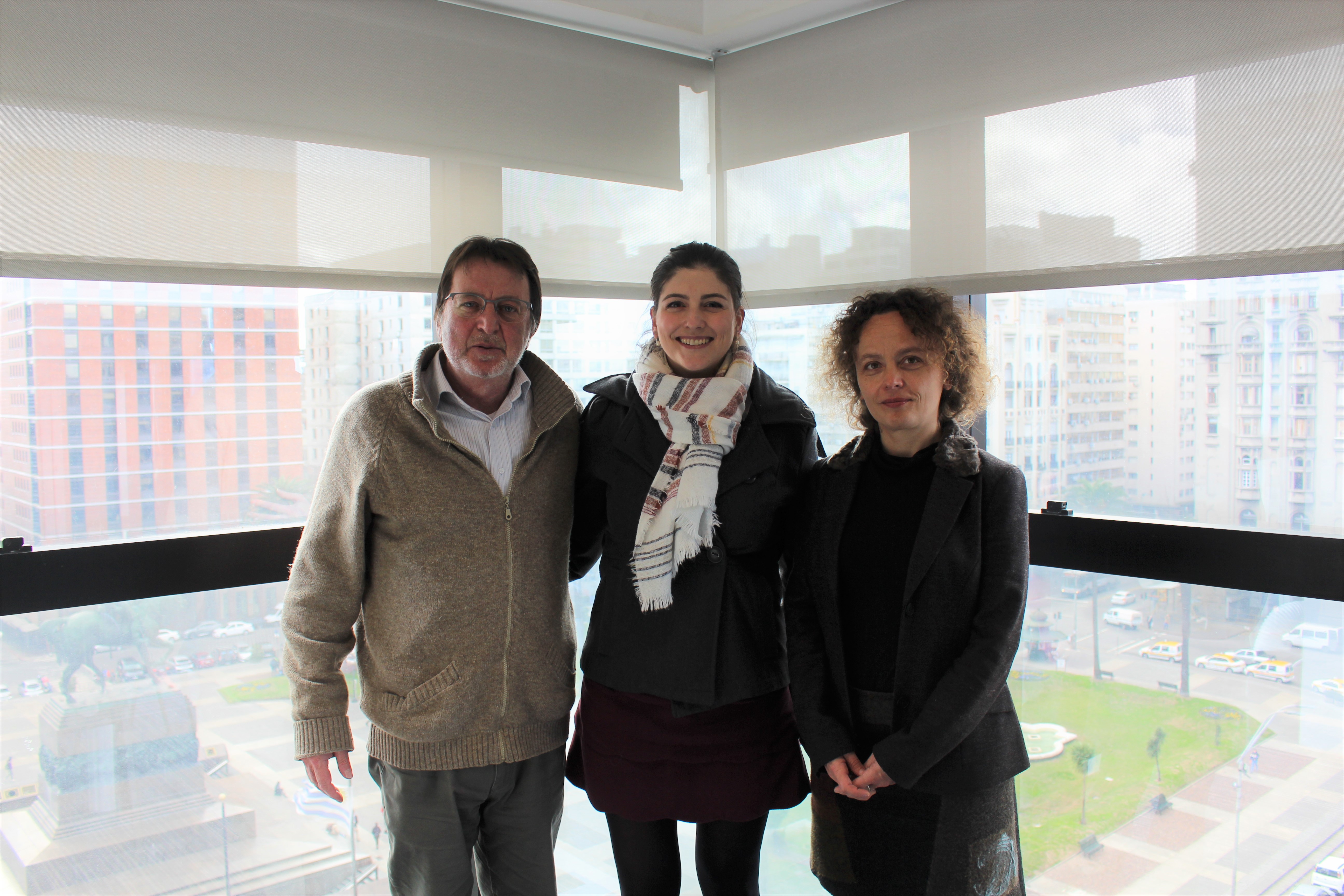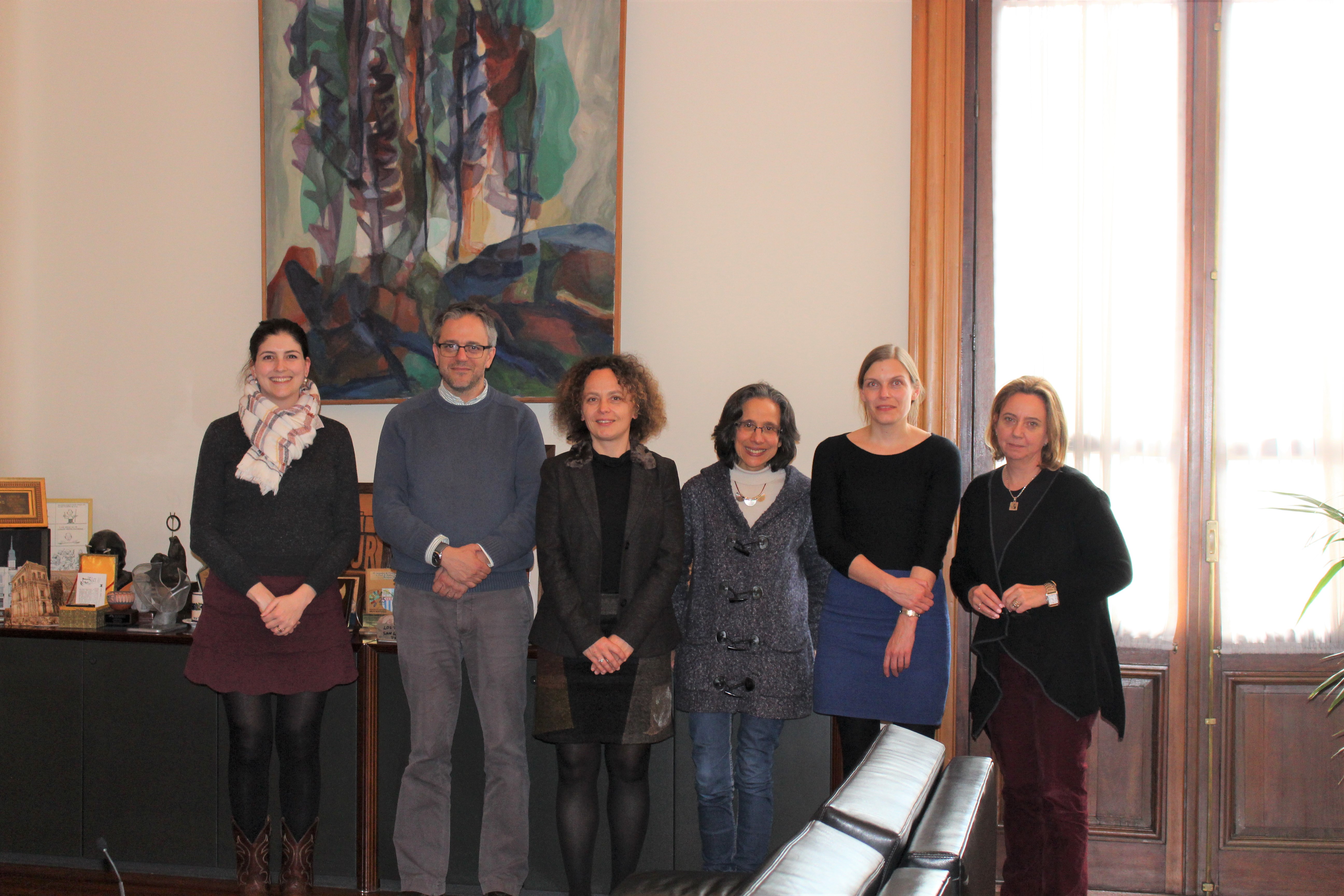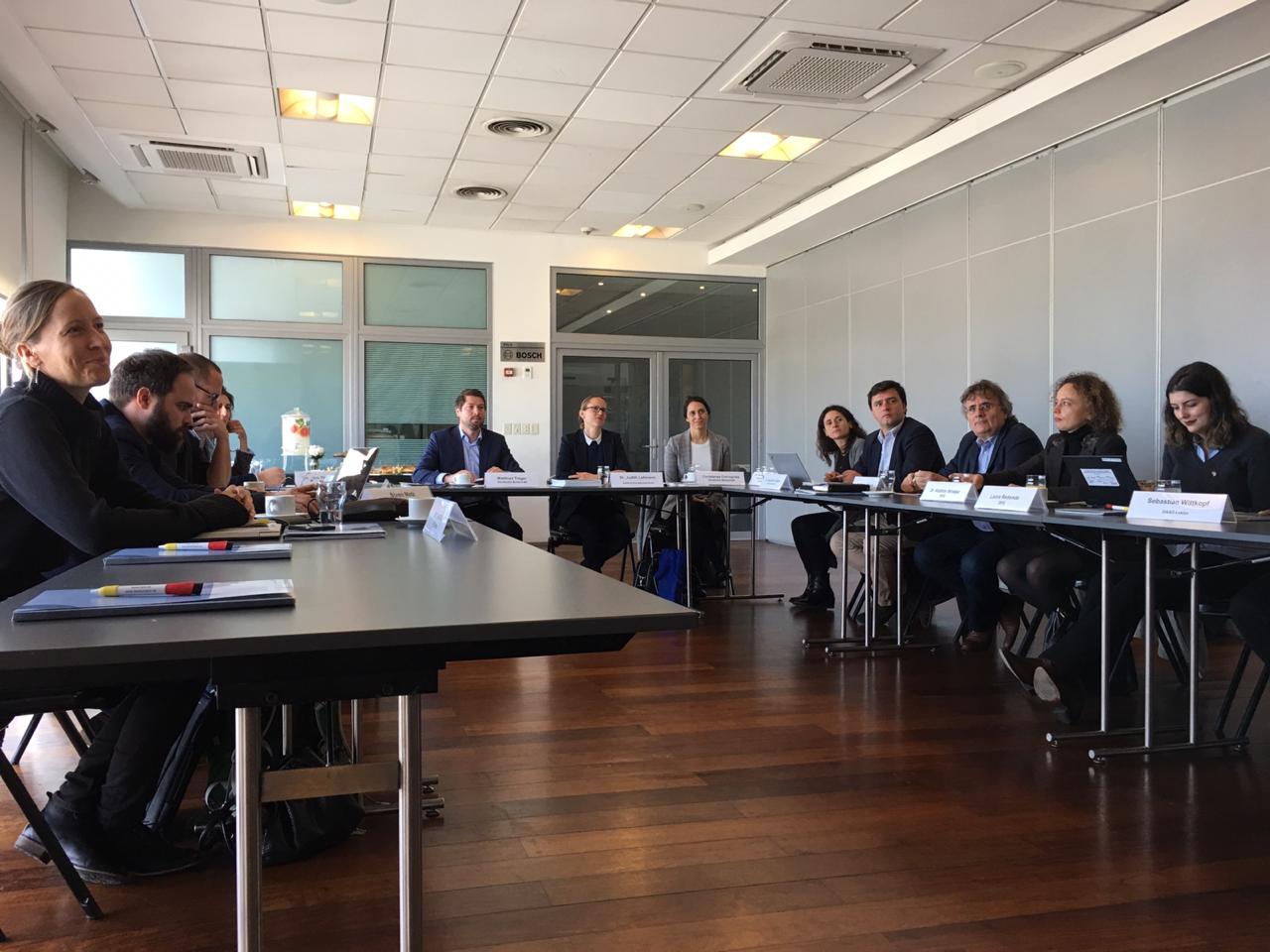Uruguay: Flexibility and Openness in Research Cooperation
(04.09.19) Uruguay and Argentina are two countries with an abundance of cultural and historical similarities who have taken very different paths in research and in terms of cooperation with Germany. Despite the geographical difference in size, top-level research is being carried out in both countries, providing a solid foundation for any activities the DFG will potentially pursue.

Eduardo Manta, State Secretary for Science and Technology in Uruguay, with Laura Redondo and Kathrin Winkler from the DFG Office Latin America
© DFG
3.4 million people live in Uruguay, of which more than 2,200 are researchers in full-time employment. The country has the highest gross domestic product per capita (16,250 US dollars) in Latin American – a symbol of its stability. Besides the two neighbouring countries of Brazil to the North and Argentina to the West, the Atlantic Ocean marks the southern and eastern border.
These geographical parameters play a key role in the Uruguayan economy, which is based on agricultural production, and have an impact on core research areas. Nevertheless, research in Uruguay has also produced numerous publications in the natural and life sciences, including in chemistry, biochemistry, molecular biology, physics and medicine.
Dr. Kathrin Winkler and Laura Redondo from the DFG Office Latin America travelled to Montevideo at the beginning of August to gain deeper insights into the local research landscape, and gauge the potential for future cooperation. The three-day visit entailed a number of meetings at institutions such as the Education Ministry (MEC), the State Secretariat for Science and Technology (SNCYT), Universidad de la República (UdelaR), the Pasteur Institute Montevideo, the Clemente Estable Institute, the National Agency for Research and Innovation (ANII) and UNESCO's Regional Bureau for Science in Latin America and the Caribbean. The programme also included a meeting with university consortium Grupo Montevideo, of which 40 public universities from six countries in South America are members. The contacts consistently signalled openness and interest along with a pragmatic and uncomplicated view of potential cooperation.

Visit to UdelaR: Laura Redondo, DFG, Rodrigo Arim, Rector, Kathrin Winkler, DFG, Cecilia Fernández, Vice-Rector for Research, Claudia Barnickel, DAAD lecturer, and Ana Butti, Department of International Cooperation
© DFG
During the trip, the DFG representatives had the opportunity to meet one of the most renowned researchers in Uruguay: Prof. Dr. Rafael Radi, physician and biochemist at Universidad de la República. According to the Web of Science, Radi has been responsible for 1.87% of Uruguay's entire scientific production over the last 20 years, representing a significant share. He also received a grant from the Alexander von Humboldt Foundation for a research project at the Max Planck Institute for Biophysical Chemistry in Göttingen, and has maintained excellent contacts with German researchers ever since. Furthermore, Radi acted as a reviewer for DFG Priority Programme 1710 "Dynamics of Thiol-Based Redox Switches in Cellular Physiology" in the field of redox and cell physiology.
In his capacity as President of the National Academy of Sciences of Uruguay (ANCIU), he was delighted at the visit of the DFG and reiterated his willingness to collaborate at the institutional level in order to promote scientific cooperation between both countries.
Besides the interest in bilateral collaboration between Germany and Uruguay, the meetings provided suggestions such as contemplating the funding of trilateral or multilateral partnerships. The country has a long tradition of regional partnerships, and such an initiative would also benefit countries like Brazil, Argentina and Chile. "This requires more comprehensive institutional arrangements, but the first step towards bringing the two countries closer together has been taken," said Dr. Kathrin Winkler, Head of the DFG Office Latin America.
Argentinien

Attendees of the network meeting in the German-Argentine Chamber of Industry and Commerce in Buenos Aires
© Francisco Moyano/AHK
Following the trip to Uruguay, Kathrin Winkler and Laura Redondo took part in an annual network meeting organised by the German Academic Exchange Service (DAAD) and the German embassy in Buenos Aires. Representatives of German research and funding institutions active in Argentina took the opportunity to exchange experiences and perspectives in German-Argentine cooperation.
The meeting took place on 15 August in the midst of the political and economic turmoil that followed the preliminary elections for the presidency in Argentina. In light of the uncertain course of the country in the next few months, all attendees agreed to sustain interest in long-term and fruitful collaboration with partners in Argentina.